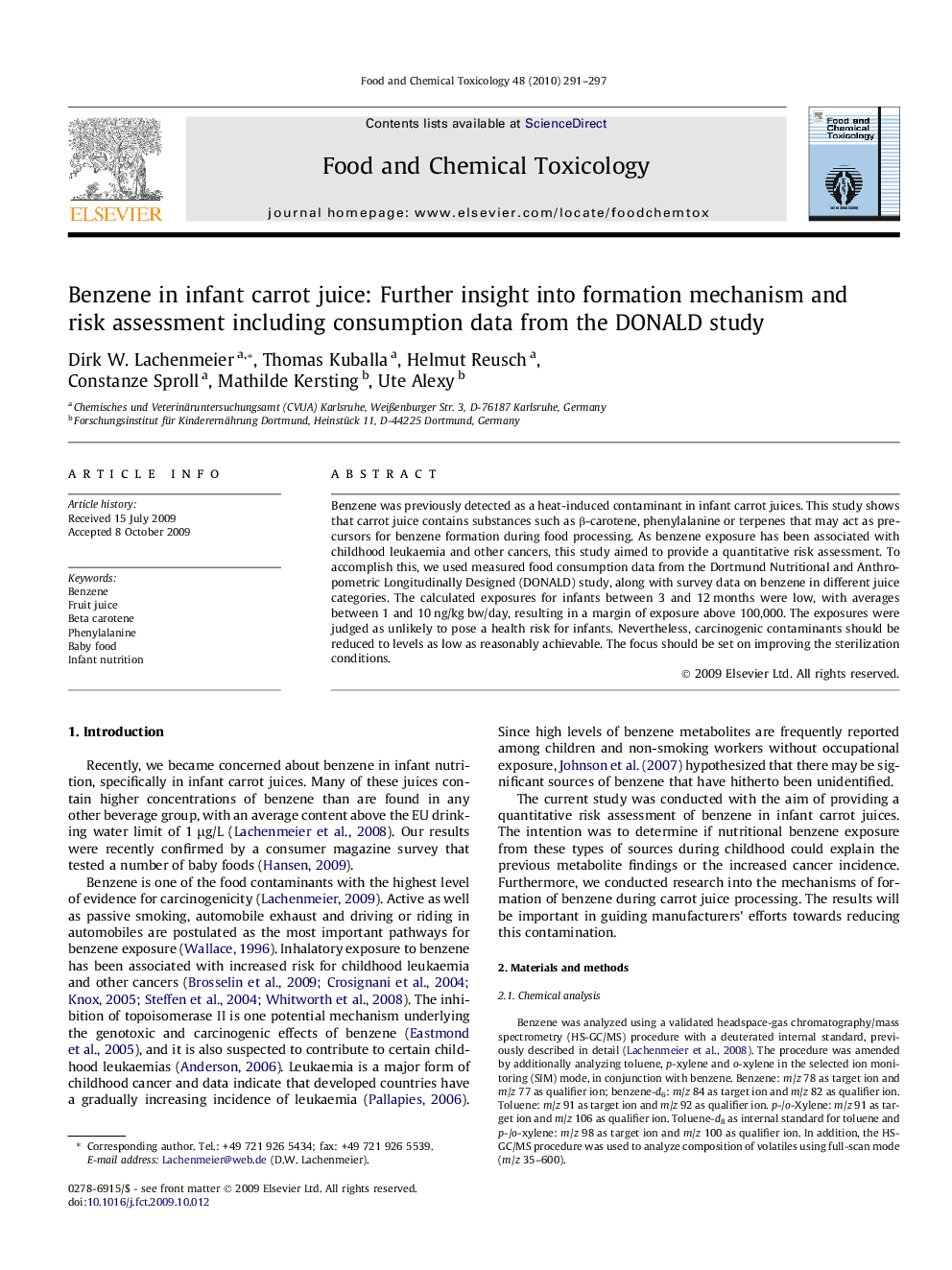| Article ID | Journal | Published Year | Pages | File Type |
|---|---|---|---|---|
| 2585861 | Food and Chemical Toxicology | 2010 | 7 Pages |
Benzene was previously detected as a heat-induced contaminant in infant carrot juices. This study shows that carrot juice contains substances such as β-carotene, phenylalanine or terpenes that may act as precursors for benzene formation during food processing. As benzene exposure has been associated with childhood leukaemia and other cancers, this study aimed to provide a quantitative risk assessment. To accomplish this, we used measured food consumption data from the Dortmund Nutritional and Anthropometric Longitudinally Designed (DONALD) study, along with survey data on benzene in different juice categories. The calculated exposures for infants between 3 and 12 months were low, with averages between 1 and 10 ng/kg bw/day, resulting in a margin of exposure above 100,000. The exposures were judged as unlikely to pose a health risk for infants. Nevertheless, carcinogenic contaminants should be reduced to levels as low as reasonably achievable. The focus should be set on improving the sterilization conditions.
